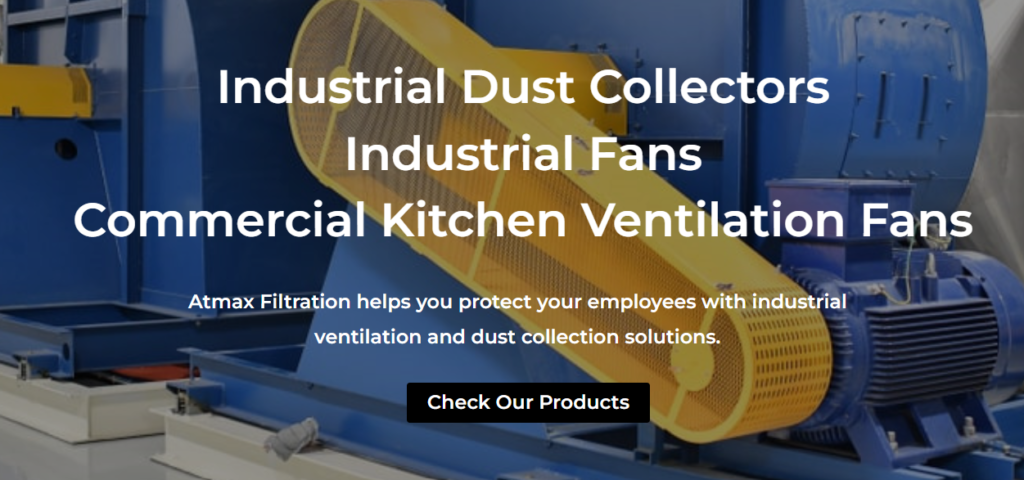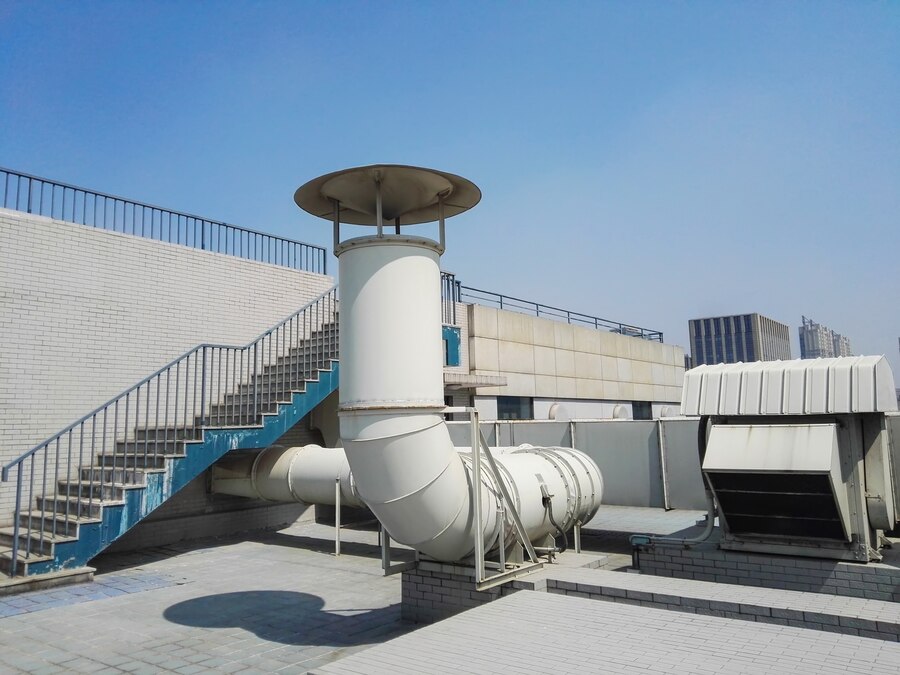Industrial air quality control is a critical component of workplace safety and environmental protection. Dust collector filters play a vital role in industrial air quality control by removing dust and other pollutants from the air. This helps to protect workers from harmful exposure to airborne pollutants and to reduce the environmental impact of industrial operations.
This blog post will discuss the different types of dust collector filters, their operating principles, and the benefits of using them in industrial air quality control applications. We will also provide tips on how to choose the right dust collector filter for your specific needs and how to properly maintain and replace it.
Why are dust collector filters important for industrial air quality control?
Particulate Removal: Dust collector filters effectively capture and remove airborne particles, including harmful contaminants like dust, smoke, and metal fumes, preventing them from entering the atmosphere.
Health and Safety: These filters help maintain a healthier and safer work environment by reducing employee exposure to airborne pollutants, which can cause respiratory issues, allergies, and long-term health problems.
Regulatory Compliance: Dust collector filters assist industries in meeting stringent air quality regulations and emissions standards, preventing potential fines and legal consequences for non-compliance.
Equipment Protection: By removing dust and debris from the air, these filters extend the lifespan of expensive industrial equipment and machinery, reducing maintenance and replacement costs.
Energy Efficiency: Cleaner air promotes better airflow and ventilation, optimizing HVAC and ventilation systems’ efficiency, resulting in energy savings and lower operational costs for industrial facilities.
Different types of dust collector filters
There are many different types of dust collector filters available, each with its own advantages and disadvantages. The best type of filter for your application will depend on the type of dust or particulate matter that you need to remove from the air, as well as the flow rate and temperature of the air.
Here are some of the most common types of dust collector filters:
Bag filters: Bag filters are one of the most common types of dust collector filters. They are made of a variety of materials, including fabric, felt, and paper. Bag filters are effective at removing a wide range of dust and particulate matter, but they can be expensive to replace.
Cartridge filters: Cartridge filters are another common type of dust collector filter. They are made of a variety of materials, including pleated fabric and metal mesh. Cartridge filters are very effective at removing fine dust and particulate matter, but they can also be expensive to replace.
Cyclone separators: Cyclone separators are a type of inertial separator that uses centrifugal force to remove dust and particulate matter from the air. Cyclone separators are effective at removing large dust particles, but they are not as effective at removing fine dust and particulate matter.
Wet scrubbers: Wet scrubbers use water to remove dust and particulate matter from the air. Wet scrubbers are very effective at removing fine dust and particulate matter, but they can be expensive to operate and maintain.
Electrostatic precipitators: Electrostatic precipitators use an electric field to charge dust and particulate matter particles, which then adhere to collecting plates. Electrostatic precipitators are very effective at removing fine dust and particulate matter, but they can be expensive to install and operate.
How dust collector filters work
Capture: Dust collector filters work by capturing airborne particles as contaminated air flows through them. The filter media’s porous structure traps particles based on size, shape, and adhesion.
Filtration: Once trapped, the particles adhere to the filter media due to mechanisms like inertial impaction, diffusion, or electrostatic attraction, depending on the filter type.
Clean Air Release: Filtered air, now free of most contaminants, exits the filter and returns to the environment or industrial process, ensuring improved air quality.
Maintenance: Over time, dust accumulates on the filter media’s surface, reducing its efficiency. Regular maintenance, such as cleaning or replacing filters, is essential to ensure optimal filtration performance.
Dust Disposal: The collected dust or particulate matter needs proper disposal, typically into a collection bin or hopper, which can then be safely handled or disposed of as needed.
Benefits of using dust collector filters
Improved Air Quality: Dust collector filters effectively remove airborne particles, ensuring cleaner and healthier indoor air for workers, reducing the risk of respiratory issues, and enhancing overall well-being.
Compliance with Regulations: Using these filters helps industries meet air quality regulations, avoiding legal penalties and maintaining a positive public image by demonstrating a commitment to environmental responsibility.
Extended Equipment Life: By preventing dust and debris from contaminating machinery and equipment, these filters reduce wear and tear, leading to longer equipment lifespan and decreased maintenance costs.
Enhanced Safety: Cleaner air reduces the risk of workplace accidents caused by poor visibility due to dust or the presence of combustible dust, ensuring a safer working environment.
Energy Efficiency: Dust collector filters optimize airflow and reduce energy consumption in HVAC systems, resulting in lower energy bills and reduced environmental impact, contributing to sustainability goals.
How to choose the right dust collector filter for your application
To choose the right dust collector filter for your application, you should consider the following factors:
The type of dust or particulate matter that you need to remove: Some filters are better at removing certain types of dust than others.
The flow rate and temperature of the air: The flow rate and temperature of the air will determine the size and type of filter that you need.
Your budget: Dust collector filters can range in price from a few hundred dollars to several thousand dollars.
Here are some additional tips for choosing the right dust collector filter:
- Make sure that the filter is compatible with your dust collector system.
- Choose a filter that is easy to install and maintain.
- Consider the cost of replacement filters.
- Get a warranty on the filter.
- Atmax Filtration is a leading manufacturer of dust collector filters. They offer a wide range of filters to meet the needs of a variety of industries.

Here are some of the benefits of using Atmax Filtration dust collector filters:
High efficiency: Atmax Filtration dust collector filters are highly efficient at removing dust and particulate matter from the air.
Long lifespan: Atmax Filtration dust collector filters have a long lifespan, which can help to reduce your costs.
Easy to install and maintain: Atmax Filtration dust collector filters are easy to install and maintain, which can help to save you time and money.
Wide range of options: Atmax Filtration offers a wide range of dust collector filters to meet the needs of a variety of industries.
If you are looking for a high-quality, durable, and easy-to-maintain dust collector filter, Atmax Filtration is a great option.
Conclusion
Dust collector filters play a vital role in industrial air quality control. They remove dust and other particulate matter from the air, making it safer and healthier for workers to breathe and reducing the environmental impact of industrial operations.
Dust collector filters are also a wise investment for businesses. They can help to reduce equipment maintenance costs, improve product quality, and increase worker productivity.
If you are responsible for managing an industrial operation, I encourage you to consider the use of dust collector filters. They are a wise investment in the health and safety of your workers, the environment, and your bottom line.

